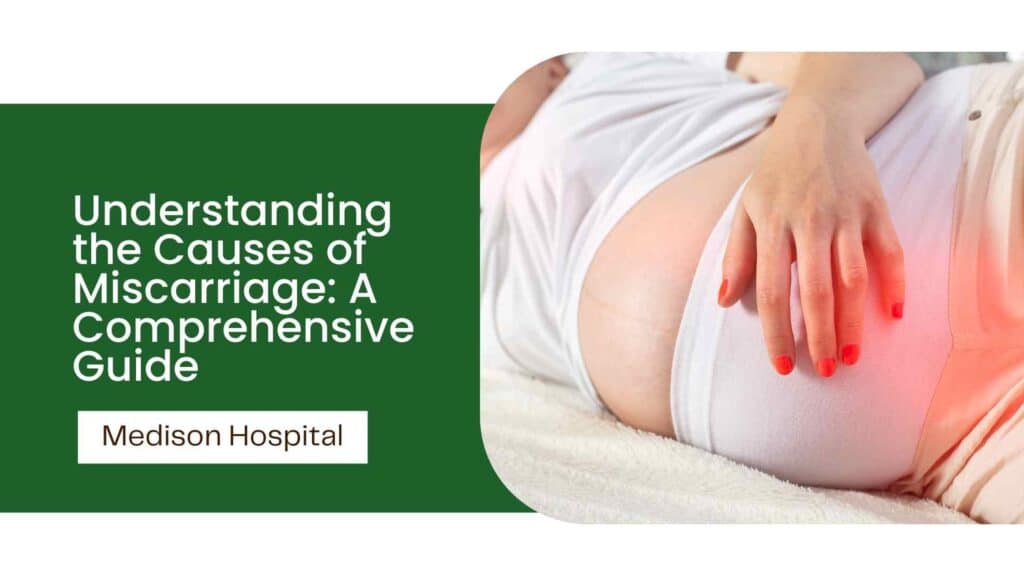Understanding the Causes of Miscarriage: A Comprehensive Guide
Miscarriage, the spontaneous loss of a pregnancy before 20 weeks of gestation, is a devastating experience that affects millions of women worldwide. While the exact cause of miscarriage remains unknown in many cases, recent advancements in medical research have shed light on several contributing factors.
In this comprehensive guide, we delve into the complex world of miscarriage, exploring the potential causes, risk factors, and preventive measures.

Chromosomal Abnormalities: A Leading Cause
Approximately 50% of miscarriages in the first trimester are attributed to chromosomal abnormalities. These abnormalities occur during fertilization when the egg and sperm fail to exchange chromosomes correctly, resulting in an embryo with an abnormal number of chromosomes.
Maternal Health Conditions: A Significant Contributor
Underlying maternal health conditions can also contribute to miscarriage, particularly in the second trimester. These conditions include:
Uncontrolled diabetes: High blood sugar levels can interfere with fetal development, increasing the risk of miscarriage.
Hormonal imbalances: Progesterone, a hormone essential for maintaining pregnancy, may be insufficient in certain conditions, leading to miscarriage.
Uterine abnormalities: Fibroids, polyps, or an abnormally shaped uterus can impede fetal growth and increase the risk of miscarriage.
Thyroid disorders: Both hypothyroidism and hyperthyroidism can disrupt the hormonal balance necessary for a healthy pregnancy.
Infections: A Potential Threat
Infections, particularly those caused by viruses or bacteria, can also trigger miscarriage. These infections include:
TORCH infections: These infections include toxoplasmosis, other (syphilis, rubella, CMV, and herpes simplex), and chlamydia, which can cross the placenta and harm the developing fetus.
Urinary tract infections (UTIs): While UTIs rarely cause miscarriage, severe infections can pose a risk.
Lifestyle Factors and Environmental Exposures
Certain lifestyle factors and environmental exposures have been associated with an increased risk of miscarriage, including:
Smoking: Smoking during pregnancy damages the placenta and reduces the oxygen supply to the fetus, increasing the risk of miscarriage.
Excessive alcohol consumption: Heavy alcohol use can interfere with fetal development and increase the risk of miscarriage.
Caffeine intake: While moderate caffeine intake is generally considered safe, excessive caffeine consumption may raise the risk of miscarriage.
Illicit drug use: Illicit drugs, such as cocaine and heroin, can have devastating effects on fetal development, significantly increasing the risk of miscarriage.
Exposure to toxins: Exposure to hazardous substances, such as lead, mercury, and pesticides, can harm the developing fetus and increase the risk of miscarriage.
Preventive Measures: Empowering Women
While preventing all miscarriages is not always possible, there are steps women can take to reduce their risk:
Seek early prenatal care: Early prenatal care allows healthcare providers to identify and manage any underlying health conditions that could increase the risk of miscarriage.
Maintain a healthy lifestyle: A healthy lifestyle, including a balanced diet, regular exercise, and adequate sleep, promotes overall well-being and reduces the risk of miscarriage.
Avoid smoking, alcohol, and illicit drugs: Abstaining from smoking, alcohol, and illicit drugs is crucial for protecting fetal health and reducing the risk of miscarriage.
Manage stress effectively: Chronic stress can negatively impact pregnancy outcomes. Practicing stress-management techniques, such as yoga or meditation, can promote emotional well-being and reduce the risk of miscarriage.
Conclusion: Navigating Miscarriage with Knowledge and Support
Miscarriage remains a prevalent and emotionally challenging experience for many women. Understanding the potential causes and risk factors, while acknowledging the limitations of preventive measures, empowers women to make informed decisions about their health. With
continued research and advancements in medical care, the hope for preventing miscarriages and improving pregnancy outcomes remains strong.

